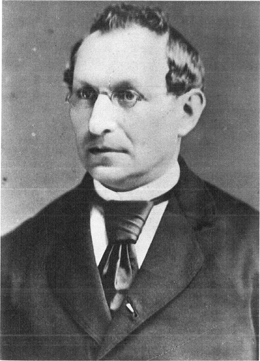Aletta Jacobs
Aletta Jacobs (1854–1929) was a pioneering figure in the fields of medicine and women's rights. Born in Sappemeer, Netherlands, she became the first woman to officially attend a Dutch university, paving the way for future generations of women in higher education and various professions. Her contributions extend beyond her medical practice to include significant activism in women's suffrage and peace movements.
Early Life and Education[edit | edit source]
Aletta Henriëtte Jacobs was born on February 9, 1854, into a Jewish family. From a young age, she demonstrated a keen interest in pursuing an education, an ambition that was not common for women at the time. Despite initial resistance, her determination led her to be admitted as the first female student at the University of Groningen, where she studied medicine. In 1878, Jacobs graduated from the University of Groningen, becoming the first woman in the Netherlands to receive a medical degree.
Medical Career[edit | edit source]
After completing her studies, Jacobs started her medical career in Amsterdam, where she opened a free clinic to provide medical care to women and children, focusing particularly on the poor. She was a pioneer in advocating for birth control and women's health, introducing the diaphragm to the Netherlands and providing counseling on family planning. Her work in this area was groundbreaking and laid the foundation for future advancements in women's healthcare.
Women's Suffrage and Activism[edit | edit source]
Beyond her medical practice, Jacobs was deeply involved in the fight for women's rights, particularly the right to vote. She was a leading figure in the Dutch women's suffrage movement, working tirelessly to advocate for equal rights. Jacobs co-founded the Vereniging voor Vrouwenkiesrecht (Association for Women's Suffrage) and served as its president for several years. Her efforts were instrumental in the eventual granting of voting rights to women in the Netherlands in 1919.
Jacobs also played a significant role in international peace efforts. She was an active member of the Women's International League for Peace and Freedom and participated in the 1915 International Congress of Women in The Hague, which sought to find peaceful resolutions to conflicts.
Legacy[edit | edit source]
Aletta Jacobs' legacy is profound. She broke barriers for women in education and the workforce, advocated for women's rights and health, and contributed to peace movements. Her life and work continue to inspire feminists and human rights activists around the world.
Jacobs passed away on August 10, 1929, but her impact is still felt today. Numerous institutions, scholarships, and awards have been named in her honor, recognizing her contributions to medicine, women's rights, and peace.
Search WikiMD
Ad.Tired of being Overweight? Try W8MD's physician weight loss program.
Semaglutide (Ozempic / Wegovy and Tirzepatide (Mounjaro / Zepbound) available.
Advertise on WikiMD
|
WikiMD's Wellness Encyclopedia |
| Let Food Be Thy Medicine Medicine Thy Food - Hippocrates |
Translate this page: - East Asian
中文,
日本,
한국어,
South Asian
हिन्दी,
தமிழ்,
తెలుగు,
Urdu,
ಕನ್ನಡ,
Southeast Asian
Indonesian,
Vietnamese,
Thai,
မြန်မာဘာသာ,
বাংলা
European
español,
Deutsch,
français,
Greek,
português do Brasil,
polski,
română,
русский,
Nederlands,
norsk,
svenska,
suomi,
Italian
Middle Eastern & African
عربى,
Turkish,
Persian,
Hebrew,
Afrikaans,
isiZulu,
Kiswahili,
Other
Bulgarian,
Hungarian,
Czech,
Swedish,
മലയാളം,
मराठी,
ਪੰਜਾਬੀ,
ગુજરાતી,
Portuguese,
Ukrainian
Medical Disclaimer: WikiMD is not a substitute for professional medical advice. The information on WikiMD is provided as an information resource only, may be incorrect, outdated or misleading, and is not to be used or relied on for any diagnostic or treatment purposes. Please consult your health care provider before making any healthcare decisions or for guidance about a specific medical condition. WikiMD expressly disclaims responsibility, and shall have no liability, for any damages, loss, injury, or liability whatsoever suffered as a result of your reliance on the information contained in this site. By visiting this site you agree to the foregoing terms and conditions, which may from time to time be changed or supplemented by WikiMD. If you do not agree to the foregoing terms and conditions, you should not enter or use this site. See full disclaimer.
Credits:Most images are courtesy of Wikimedia commons, and templates, categories Wikipedia, licensed under CC BY SA or similar.
Contributors: Prab R. Tumpati, MD





